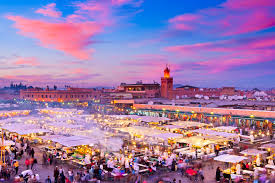
I was born under the African sky. My earliest memories were of Africa, memories that have remained with me, returning at times with the slightest whiff of turmeric, cumin, ginger or mint, or with the taste of goat cheese, lamb, dates, tangerines and certain breads, or at the sound of the tambourine, accompanied by the bendir and the ghayta.
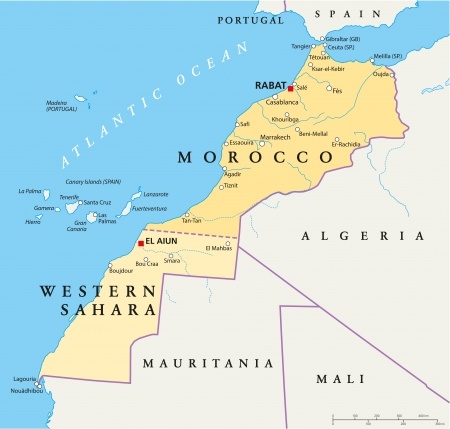
They are memories of Morocco, or Marakush, meaning “Land of God,” or الممغرب al-Maġrib, meaning “The West,” or “land of the setting Sun.” Morocco is a key area of the Maghreb (Northwest Africa, the region including the Atlas Mountains and the coastal plains of Morocco, Algeria, Tunisia and Libya). When I was born, the Kingdom of Morocco was a new state, ruled by Sultan Mohammed V.
While my father was born in America, his family originally came from Morocco. His great grandfather and brother came to the United States during the late Civil War Reconstruction Period (1870s-1880s). They were mercenary soldiers who worked to protect the gold on trains travelling through the American South and the Midwest. Their commanding officer was an Irish fellow by the name of McGee.
In time, my father’s great grandfather settled in Money, Mississippi, in Leflore County, named after French/Indian chief, Greenwood Leflore. According to my father, Mack McGee was a progressive activist whose activities eventually got him deported, but not before he fathered a son named Benjamin. Pending Mack’s deportation, Benjamin’s mother and family hid the boy from his father to keep him in America. Mack was later killed leading an insurrection in Barbados.
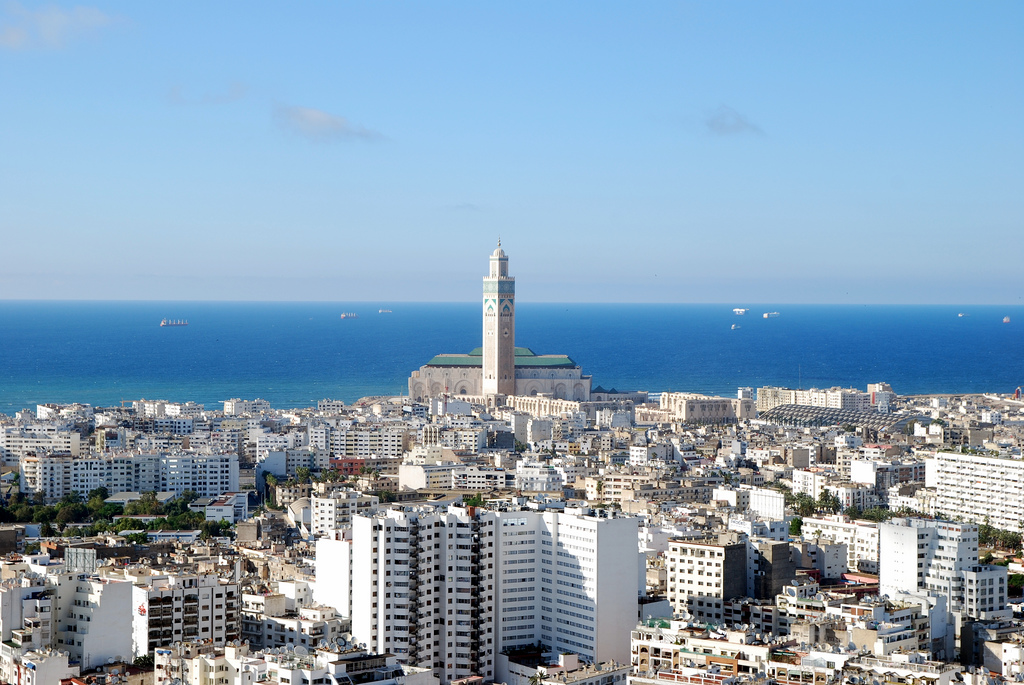
I was born in Casablanca, the largest city in the Maghreb, situated on the Atlantic Ocean along the west coast. The name comes from the Spanish/Portuguese description of the medina, the old city, which was a maze of narrow streets and “whitewashed” brick or “white” stone houses, partially enclosed by its original rampart walls.
The port city has a rich history, involving pirates and privateers, conquests by the Portuguese, Spanish, French, and of course, the subjugation over the American movie box office by expatriate Rick Blaine (Humphrey Bogart), by the 1942 movie of the same name.
My parents told me that the doctor who delivered me was also a large animal veterinarian (a horse doctor), “with a poor bedside manner,” according to my mother. He apparently knew what he was doing, as I came into the world with the umbilical cord wrapped around my neck. With the exception of a smear of blood on my forehead, I was no worse for the wear (or so I’ve liked to think).
During the time our family was in Morocco, my father found relatives, who took him to their village where “everyone looked like us”—a scary thought! In Casablanca, we lived in a beautiful villa once owned by a prestigious French diplomat. We had a “houseman” named Bushmar and female house servants, who the locals called “Fatimas.” Elsa was the Fatima I loved.
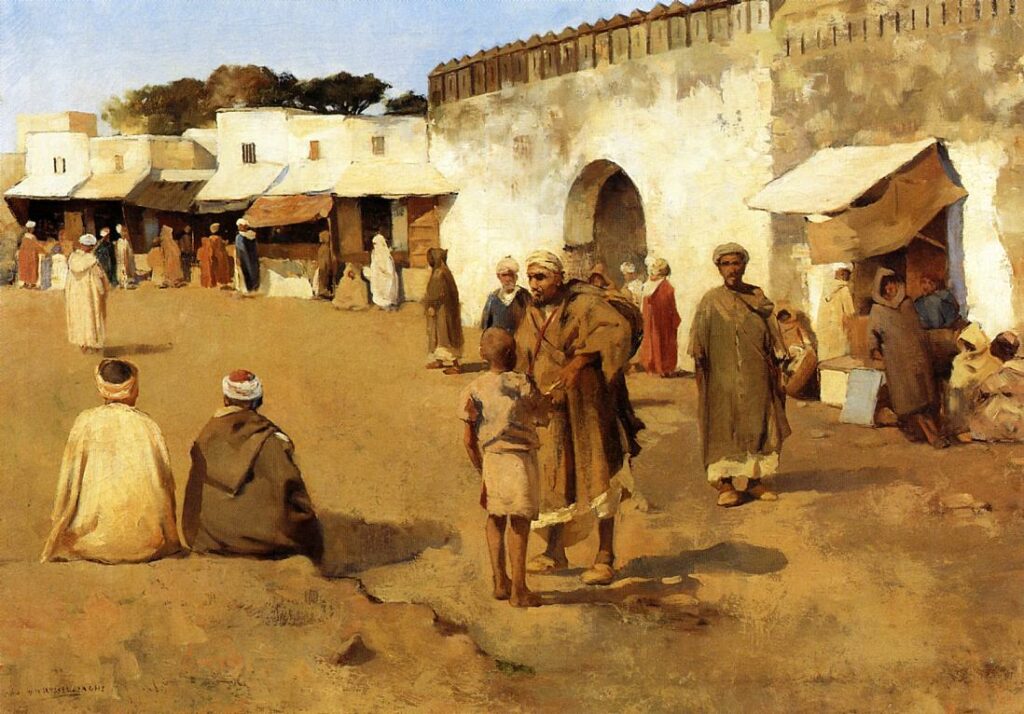
I was the fourth child. Upon my birth, all three of my elder siblings were under five, and nine months later, my younger brother was on the way. My mother was overwhelmed, so Elsa, who took a special interest in me, showed me love and tenderness. She embraced me, taking me with her, on her back, when she went to the market, when she went on errands and when she did ironing and other chores. On most nights, when she went to her home, she took me with her and brought me back in the morning. I slept next to her.
Elsa, whom I remember as a lovely Moroccan woman with large, dark eyes, was in her late twenties at the time, having married an old Frenchman when she was twelve or thirteen. Her two teenaged sons were in boarding school, while her husband was very old, or dead. So I had Elsa all to myself, and she told me stories in Arabic and French and doted on me, making me feel special. Yet when I went back home to my family, I was just another kid. I think I loved her as much as she loved me.
Our growing bond was not overlooked by my mother, who worried that Elsa and I had grown so close that Elsa might steal me away from the family, that she would disappear with me when it was time for the family to move. And once the suspicion became concern, she fired Elsa at once, instantly severing our special bond.
At such a young age, I had no understanding about what had happened. I only knew that this woman, this special woman who I saw every day of my life, who loved me, who shared her heart with me, who I knew like I knew no other, was gone. From all… to nothing. I never saw her again (except for in my dreams), but I never forgot how broken my heart was, and how in some ways, it still remains broken today.
By the time I got to college, I fancied going back to Casablanca to rescue her, wherever she was, and take care of her in the same loving way that she took care of me, but I did not know where to begin to look. I’ve often thought of her over the years, and what would have been if we I had never lost her. She will always be in my heart, and in the soul of the stories I write. She is present in most of my work, especially in the narratives and scenes and that involve matters of the heart.
When we eventually moved to the United States, my family carried vestiges of Morocco with us. We had furniture and brass tables, coins, fabrics, tapestries, wooden carvings, utensils, and memories of course. I can recall the open marketplaces, the souks, where loud vendors, seeming angry, argued with customers, where merchants brought strange and exotic goods from the sea, from places halfway around the world, where sights, faces and stories captured my imagination, and where Elsa bought me the dried figs and briouats that were so delicious!
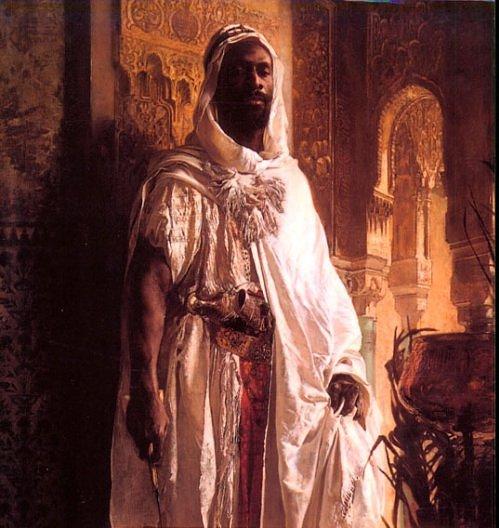
I have always imagined what people my ancestors were. I’ve imagined the design of their faces and of clothing they wore. In Maghreb, the dominant Moorish culture was sophisticated, contemplative and intellectual. So I imagine my archetypal ancestor as a strong leader, a considerate son, a loyal friend, an honest counselor, a loving husband, a prudent judge, a wise merchant, a generous father, a responsible citizen, and above all, a man of adventure, who lived his life with passion—who possessed of all the qualities I seek to engender.
